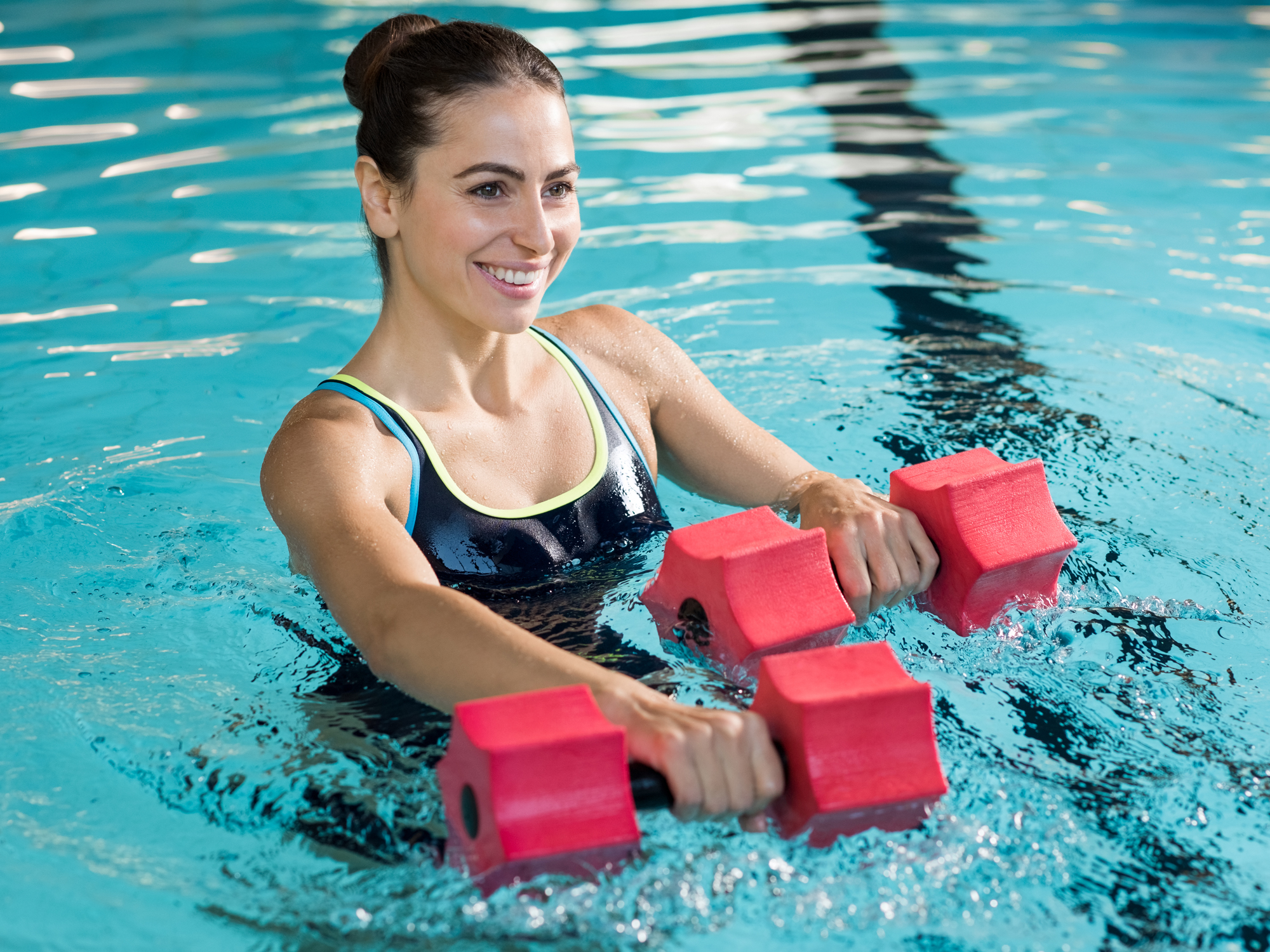Get Easy Health Digest™ in your inbox and don’t miss a thing when you subscribe today. Plus, get the free bonus report, Mother Nature’s Tips, Tricks and Remedies for Cholesterol, Blood Pressure & Blood Sugar as my way of saying welcome to the community!
The ‘less work’ workout for a healthier heart and longer life

If you work out regularly, I’m guessing your workouts usually take place on dry ground.
You run, ride your bike, lift weights, do yoga, powerwalk or some other exercise routine that keeps two feet firmly planted on the pavement.
But if you want to get more fit with less work, you should consider taking your workout to the water. If you do, you’ll experience some remarkable benefits that your land-based workouts just can’t match…
The many benefits of water-based workouts
Water provides more resistance to your body than air. That means it works you out harder. But its buoyancy also takes a lot of pressure off your muscles and joints, which means it’s easier on your body — even when you’re working harder. In fact, when you’re in the water, you’re only bearing 50 percent of your body weight
As a result, water-based workouts are good for people with joint problems. People who aren’t able to exercise on land because of stiff and painful joints will find exercising in the water enjoyable and pain-free. It’s also good for people with neurological or muscle issues that make it hard to hold their own body weight, as well as people who are overweight.
Water’s buoyancy helps you build flexibility and balance too. Because it supports half of your body weight, it allows you to stretch and move in ways that would be impossible on land. If you work out in the water regularly, eventually you’ll notice an improved range of motion and better balance in or out of the water.
And, to top it all off, swimming is one of the best workouts for your cardiovascular health. Studies show that swimmers have better blood pressure and cholesterol, along with less arterial stiffness—all of which are risk factors for heart disease.
In addition, one study showed that swimming even leads to a longer life. Swimmers were less likely to die than runners, walkers and people who didn’t exercise. And other studies show that swimmers have better blood sugar and insulin sensitivity.
So, in the end, good water-based workouts will improve your strength, flexibility, metabolic health and cardiovascular health. It may even lead to a longer life!
Starting a swim routine
Now, if you’re eager to break out your swim cap and goggles and do some laps in the nearest pool, good for you. But not everybody’s a natural-born swimmer.
If becoming a better swimmer is on your bucket list, you can sign up for swim lessons. This will increase your confidence and make you feel more comfortable in the water. You can also go for short 5-10 minute swims on your own to build your swimming strength and stamina.
But if you’re sure traditional swimming isn’t for you, try other underwater workouts. See if your local park district or YMCA offers water aerobics classes, aquatic kickboxing, Ai Chi (aquatic Tai Chi) or other classes that get you moving in the water.
If none of these classes are available to you, keep your water-based workouts simple. Head to the shallow end of your local pool and run in place. Or try this aquatic exercise routine developed by the American Council on Exercise. It even comes with a playlist to keep you movin’ and groovin’ during your underwater workout.
Editor’s note: Have you heard of EDTA chelation therapy? It was developed originally to remove lead and other contaminants, including heavy metals, from the body. Its uses now run the gamut from varicose veins to circulation. Click here to discover Chelation: Natural Miracle for Protecting Your Heart and Enhancing Your Health!
Sources:
- “Take the (exercise) plunge.” — MedicalXpress. Retrieved August 3, 2017.
- “Build Your Own Aqua Fitness Class.” — American Council on Exercise. Retrieved August 3, 2017.
- “Take the plunge for your heart.” — Harvard Health Publications. Retrieved August 3, 2017.
- “Why Swimming Is So Good For You.” — Time. Retrieved August 3, 2017.
- “Why Swimming Is So Good for You.” — Berkley Wellness. Retrieved August 3, 2017.













